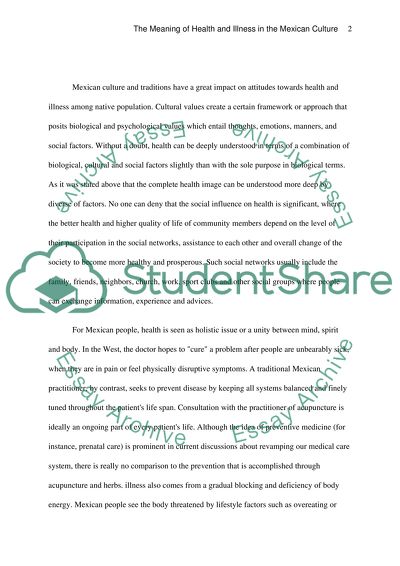Cite this document
(“The Meaning of Health and Illness in the Mexican Culture Essay”, n.d.)
The Meaning of Health and Illness in the Mexican Culture Essay. Retrieved from https://studentshare.org/miscellaneous/1527322-what-is-the-meaning-of-health-and-illness-in-the-mexican-culture-and-how-does-it-impact-on-the-issue-of-physical-activity-and-obesity
The Meaning of Health and Illness in the Mexican Culture Essay. Retrieved from https://studentshare.org/miscellaneous/1527322-what-is-the-meaning-of-health-and-illness-in-the-mexican-culture-and-how-does-it-impact-on-the-issue-of-physical-activity-and-obesity
(The Meaning of Health and Illness in the Mexican Culture Essay)
The Meaning of Health and Illness in the Mexican Culture Essay. https://studentshare.org/miscellaneous/1527322-what-is-the-meaning-of-health-and-illness-in-the-mexican-culture-and-how-does-it-impact-on-the-issue-of-physical-activity-and-obesity.
The Meaning of Health and Illness in the Mexican Culture Essay. https://studentshare.org/miscellaneous/1527322-what-is-the-meaning-of-health-and-illness-in-the-mexican-culture-and-how-does-it-impact-on-the-issue-of-physical-activity-and-obesity.
“The Meaning of Health and Illness in the Mexican Culture Essay”, n.d. https://studentshare.org/miscellaneous/1527322-what-is-the-meaning-of-health-and-illness-in-the-mexican-culture-and-how-does-it-impact-on-the-issue-of-physical-activity-and-obesity.


